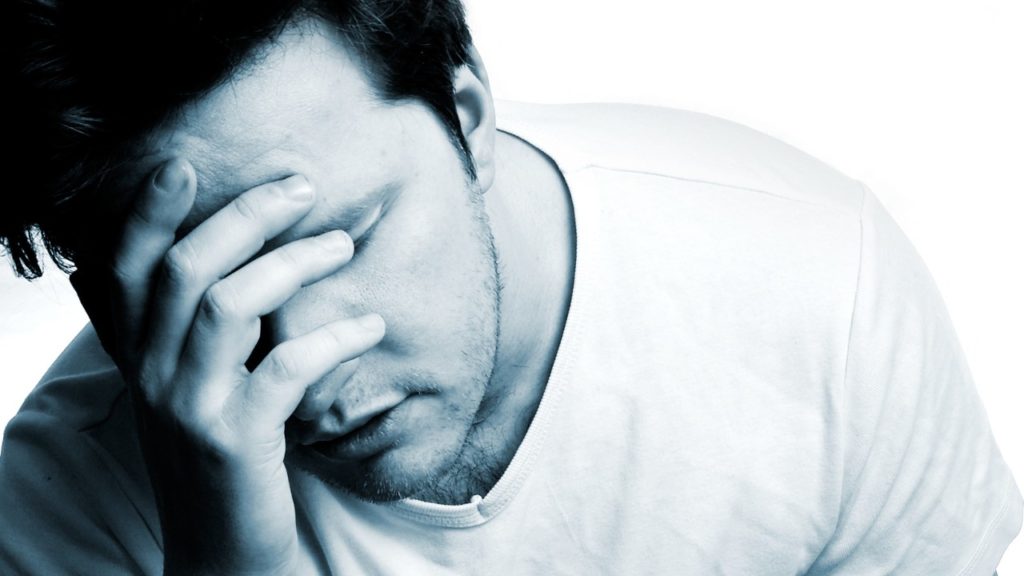Addiction is a complex chronic disease that disrupts regions of the brain that are responsible for reward, motivation, learning and memory.
It’s a disease that requires treatment, daily maintenance and a strong support system. Like diabetes type-II, cancer and asthma, addiction is treatable but not curable.
Understanding Addiction and Mental Health
Many people who are struggling with substance abuse also have an underlying mental health disorder, such as anxiety or depression. In fact, nearly 9 million people in the United States have a co-occurring mental illness and substance use disorder. In Australia the percentage is climbing higher each year.
Addiction is a complex and often misunderstood condition that can have a significant impact on mental health. It is a chronic brain disease that involves compulsive drug or alcohol use despite harmful consequences. Addiction can affect people from all walks of life, regardless of age, gender, or socioeconomic status. At Phenix Health, we understand the impact that addiction can have on mental health and are committed to providing online prescription services to those in need.

Causes
Addiction is a complex, chronic disease that can affect people in different ways. It can be influenced by genetics, family history, and environmental factors. It also may be affected by mental health issues like depression or anxiety.
A person’s genes are thought to account for about half of their risk of addiction. Other factors, such as early exposure to drugs and alcohol, stress and parenting guidance can also contribute to the development of addictions.
Those with untreated mental health disorders, such as depression or anxiety, are more likely to develop a substance use disorder (SUD). Drugs and alcohol often help to relieve symptoms of these disorders.
Some substances create a pleasurable “high” by stimulating dopamine in the brain’s reward circuitry. This can lead to addiction, since a person is trying to recreate that effect by taking more and more of the substance.
The brain changes during addiction, which makes it harder for someone to stop using a substance. It can also make a person unable to control their behavior, even when they know it is harming themselves or others.
It is also possible for a person to become addicted to multiple substances at once. These people are often called polysubstance abusers.
Addictions can be difficult to treat, but they do exist and are treatable with support. They can be prevented by learning to recognize their signs and symptoms, understanding what causes them, and getting help for them.
Many people who get addicted to drugs develop strained relationships with friends and family, which can make them feel lonely and worthless. They also tend to see themselves as failures because they have tried recovery before, only to relapse and fail again.
Despite these negative effects, most people with addictions can still manage to function normally without drugs. They need to understand that their brain has been changed by addiction, and they have to be willing to change their habits and behaviors.
Those with addictions are also more likely to engage in unhealthy behaviors, such as lying or hiding their substance use from others, or engaging in risky activities such as driving under the influence of alcohol or drugs. They may also experience physical withdrawals, which include uncomfortable symptoms such as nausea, vomiting or chills when they stop using their drug of choice.
Symptoms
Addiction is a complex condition that affects many different aspects of a person’s life, including mental health. It can lead to changes in the brain that can disrupt areas of memory, decision-making and impulse control, which can make a person less likely to deal with stressful situations properly.
When someone develops an addiction to a substance or behavior, it can be very difficult for them to stop using. The symptoms of addiction can be very hard for others to understand, but there are certain signs and symptoms that you should look out for.
Symptoms of addiction include a desire for the drug or behavior, a hard time controlling the use of the drug or behavior and a pattern of using the drug or behavior that is difficult to change. They can also be accompanied by physical symptoms, such as withdrawal.
The symptoms of addiction often occur after a person has used a substance for a long time. If they suddenly stop using the substance or behavior, they may experience withdrawal symptoms such as shaking, sweating, nausea and vomiting, and a general feeling of anxiety and irritability.
There are other physical symptoms of addiction, such as weight loss, changes in appetite, insomnia or other problems with sleep. These are often caused by the substance or behavior replacing important parts of a person’s day, such as eating and sleeping.
A person with an addiction may also experience other health problems, such as infectious diseases (such as HIV), accidents or death by suicide. In addition, they are more likely to get involved in dangerous or illegal activities, such as driving while high, sharing needles, or being abused by other people in their group.
It’s crucial to seek help as soon as you notice the symptoms of addiction. This will help you or your loved one get the treatment they need and prevent further health problems.
Often, a person who has a mental health problem is more likely to develop an addiction as a way to cope with the symptoms of their mental illness. This is called a “dual diagnosis.” Early detection and treatment of both conditions can often improve the quality of life of patients with both disorders.
Treatment
There are many different treatment options for addiction, including medications, psychotherapy and support groups. The best way to find out which treatment works for you is to talk with a mental health professional about your specific needs and goals.
Treatment should address your substance use and any underlying mental health conditions, such as depression or anxiety disorders. It also addresses other issues that can impact your recovery, such as legal problems or social concerns.
Medications can be used to help with withdrawal symptoms while you detoxify and to help you stay sober in recovery. Behavioral therapies are also important, and can be used to help you learn to control your thoughts and feelings about using drugs and alcohol and to improve your relationships and quality of life.
The type of treatment that works for you depends on the substance, your length of use and the severity of the problem. Some people require a long-term program that includes medical care and support, while others may only need outpatient treatment.
Inpatient treatment, also known as residential treatment, provides around-the-clock medical and therapeutic support. It is usually recommended for people with severe forms of addiction and those who have co-occurring mental health disorders.
Outpatient treatment programs are less intensive than inpatient programs, but they still provide medical care and counseling. Patients can attend meetings at a nearby facility or at home with their families.
Counseling and other behavioral therapies can be used to address a variety of mental health conditions, such as depression or bipolar disorder, and they can be an effective treatment for drug addiction as well. These therapies also include education about relapse prevention and how to deal with triggers.
During therapy, you can explore and understand your feelings, develop healthy coping skills and make changes in your life that can improve your health, relationships, and employment. You can also participate in group therapy, where you work with a counselor to discuss your problems and learn ways to manage them.
Treatment for addiction and mental health needs to be effective, and it needs to be readily available. Individuals who are seeking treatment should be given access to the services they need and should remain in treatment for an adequate period of time to maximize their chances of a successful recovery.
Support
There is a lot of support available for those affected by addiction and mental health. Addiction can be a difficult illness to get help with, but it is possible to overcome the problem and lead a happy and productive life.
The right treatment is important to help people recover from addiction and to prevent relapse. There are a variety of treatments, including medication, psychotherapy (talk therapy), self-help groups and community support.
Medications are used to treat withdrawal symptoms and to control drug cravings. Psychotherapy can help individuals understand their behaviors and motivations, learn better coping skills and reduce their stress. It also can help address other psychiatric problems.
Many substance abuse and mental health issues are treatable, and treatment can improve the quality of life for the individual, their family, friends and the communities they live in. In fact, research shows that when treatment is provided early and with the patient’s involvement in recovery activities, recovery outcomes are significantly improved.
Most people with a substance use disorder also have a mental health disorder. This is called a co-occurring mental illness or comorbidity. Often, the mental health disorder causes the substance use to worsen or become unmanageable.
Depression, anxiety and bipolar disorders are among the most common co-occurring mental illnesses. They can cause intense feelings of sadness and mood swings, causing the individual to want to use substances to relieve their emotional pain.
The most effective way to treat a mental health condition is to get professional help from a mental health specialist. These professionals can diagnose the illness, offer treatment options and refer you to a local mental health clinic or other resource.
A doctor can also give you medications if needed, or if the symptoms are severe enough to require hospitalization. Other therapies include exercise and relaxation, meditation and acupuncture.
Your GP or drug and alcohol service may also be able to provide you with talking therapies, such as cognitive behavioral therapy (CBT) or dialectical behavior therapy (DBT). These can help you learn new ways to deal with emotional problems and change your patterns of thinking and behaving.
In conclusion, addiction can have a profound impact on mental health, and it is essential to seek help from a qualified healthcare provider. At Phenix Health, we offer convenient and confidential online consultations with experienced doctors who can provide online prescriptions for addiction treatment.
With the right treatment and support, individuals can recover from addiction and improve their overall mental health and well-being. If you or a loved one are struggling with addiction, don’t hesitate to reach out to Phenix Health for help. Our telehealth services make it easy to get the care and support you need from the comfort of your own home.






Phenix Health delivers online health services 24/7 provided by Australian doctors and healthcare professionals.